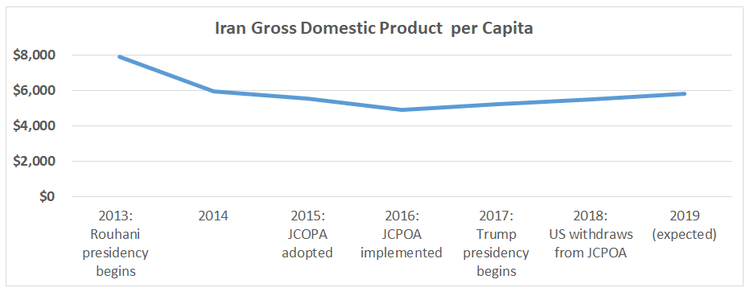Iran’s Strategy Is Working: Stratfor
After the United States abandoned the Joint Comprehensive Plan of Action – an international agreement limiting Iran’s nuclear weapons program – and reinstated sanctions, Iran remained defiant, this despite economic hardship accompanyng reduced oil exports and high inflation. The United States expresses a willingness to talk, but Iran refuses without some sanctions relief. “Over the past three months, the U.S.-Iran conflict has gone from Washington's campaign of “maximum pressure” against Tehran to Iranian provocations that called the White House's bluff (and brought the region to the brink of war in the process) to a French-tailored diplomatic opening,” explains Reva Goujon for Stratfor. Iran has continued to develop its nuclear capability while also showing muscle in the Persian Gulf, seizing an oil tanker and suspected of sabotaging others. Goujon explains how Iran’s strategies led to multiple outcomes: demonstrating the country can pose a credible threat, exposing US reticence for war and similar wariness among Gulf countries and US allies, and encouraging a French proposal for an oil-backed credit line. Talks are not scheduled, but both sides focus on negotiating strategies. A de-escalation in tensions would benefit the entire Middle East. – YaleGlobal
Iran’s Strategy Is Working: Stratfor
Iran is weakened after US withdrawal from the international nuclear agreement, yet displays defiance in demanding sanctions relief before any talks begin
Friday, September 13, 2019
Read the article form Stratfor Worldview about Iran’s strategies since US withdrawal from the Iran nuclear agreement.
Reva Goujon is a leading global strategic analyst who keeps her finger on the pulse of emerging trends across the world. Ms. Goujon leads Stratfor’s team of analysts and plays an integral role in applying a forward-looking, strategic lens to Stratfor’s coverage of global events.

(Source: CEIC)
Stratfor Worldview
Copyright ©2019 Stratfor Enterprises, LLC. All rights reserved.